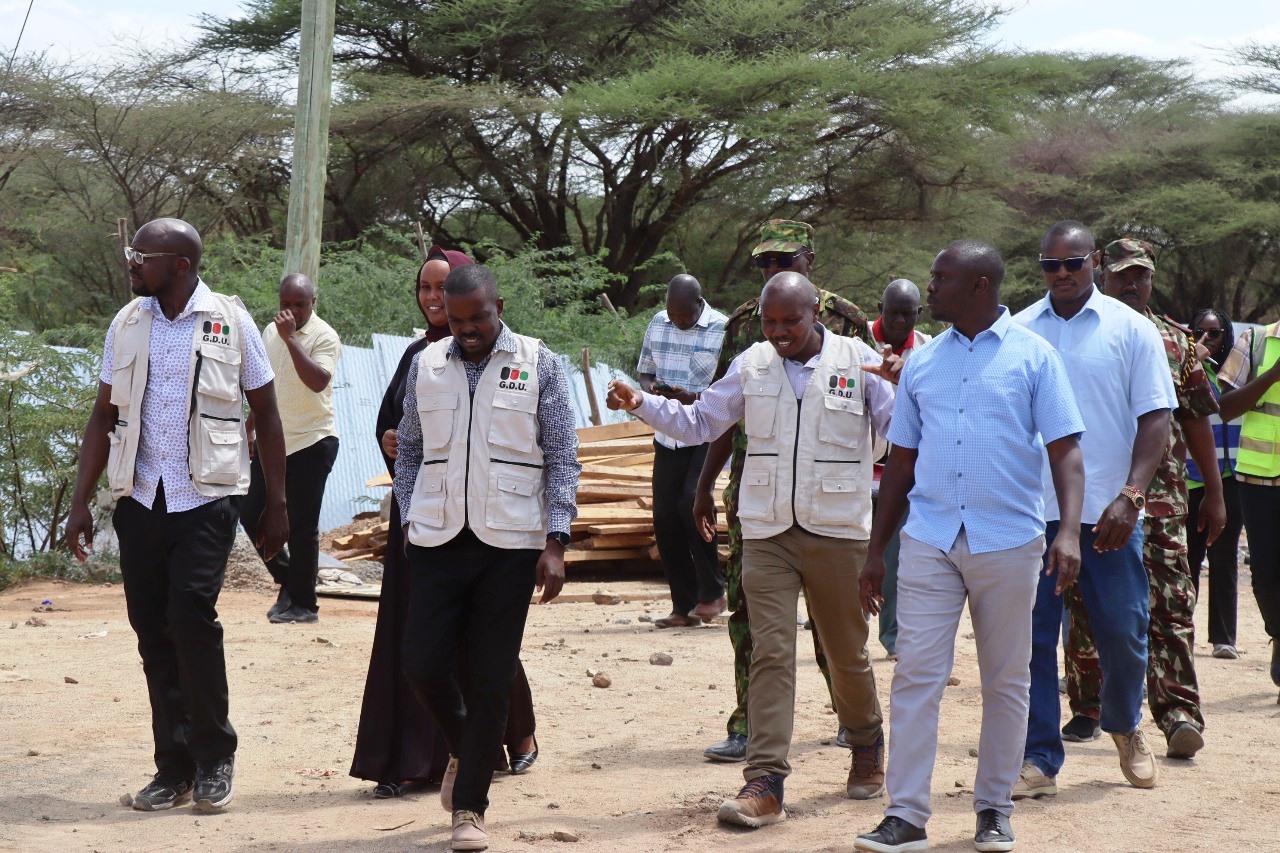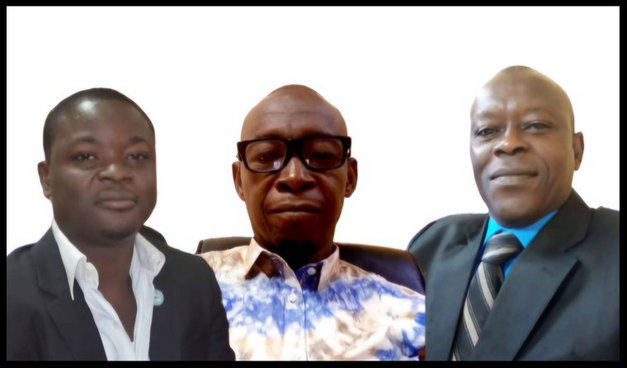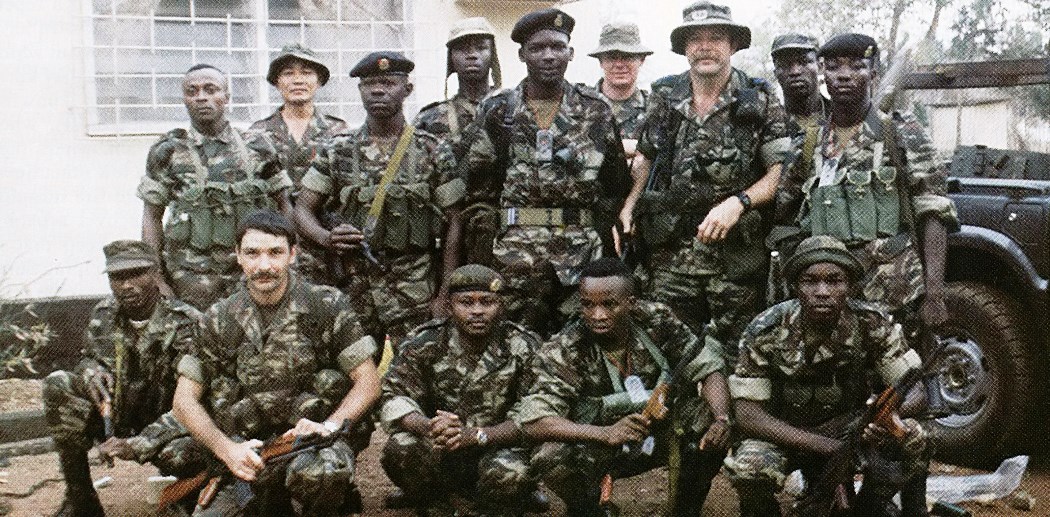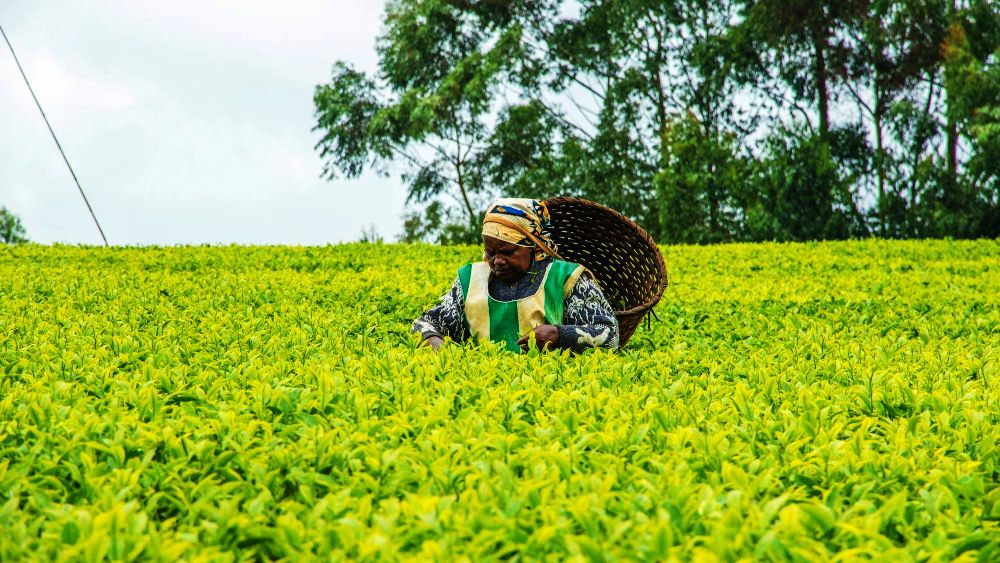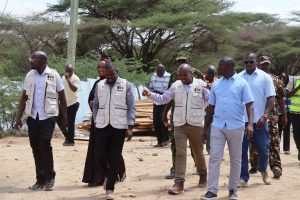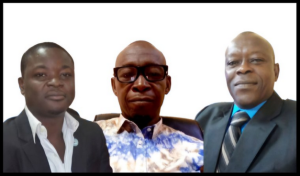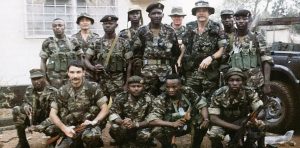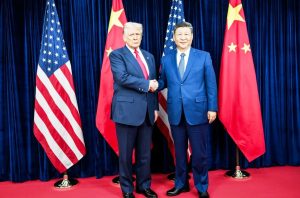Opposition leader Raila Odinga with former Nigerian President Olusegun Obasanjo, who is campaigning for him to become African Union Commission chairman. PHOTO/UGC.
By MORRIS ODHIAMBO
Raila Amolo Odinga’s potential candidature to be the chairman of the African Union Commission has caused a lot of excitement in Kenya, the African continent, and perhaps globally.
In my view, there are three things that are propelling this conversation: (i) the people of Africa yearn for a leadership that can turn the tide towards a more people-centered integration process, one that does not constantly ignore them and their interests; (ii) the institutions of African Union need to be re-engineered to provide the basis for a more people-centered integration approach, and (iii) there is some level of anxiety as to how Raila’s leadership may transform the African Union, if at all.
Within the Kenyan political structure, all major political players have their own reasons for wanting Raila to travel to Addis Ababa, Africa’s informal capital. Within the ruling Kenya Kwanza leadership, Raila’s absence from the local political scene guarantees Ruto a smooth sail in the 2027 presidential race.
In Raila’s political “bedrooms” (strongholds), there is apprehension that Raila’s absence in the local scene will cause major upsets. Many are politicians who depend purely on Raila’s benevolence and influence to win elections.
Things are not settled in the Azimio coalition on this matter. Whereas Kalonzo Musyoka voiced his support for Raila’s employment by the AU, it is clear that Raila’s absence from the campaign trail in 2027 will consign Kalonzo to the dustbin of political history.
But, away from the political calculations of the day, and the interests of global capital, there are those on the African continent who genuinely believe Raila has something special he can offer the continent by working at the top echelons of the African Union.
My reflection today is based on the concept of supra-nationalism. At the core of the concept is the ceding of sovereign decision-making to bodies formed to spearhead integration. The African Union Commission is the most important organ in this regard. The Chairman is, among others, the chief executive officer and legal representative of the AU.
One of the most important challenges of African integration has been the lack of political commitment to allow continental bodies to make binding decisions. This challenge emanates from the initial post-independence tensions. Independence ushered in the era of territorial African nationalism, effectively undermining broader Pan Africanism.
It is instructive that the Charter of the Organisation of African Unity (OAU) never mentioned Pan Africanism or political union but emphasised safeguarding the integrity of colonial boundaries.
Even with the founding of the African Union, matters did not improve. Attempts by the late Muammar Gaddafi to “fast-track” Africa’s political union caused a lot of political apprehension within the continent and set the stage for his execution by imperialist interests in 2011.
Within intellectual and activist circles in Africa, there is always a sense of frustration with progress in continental integration. This signifies the wide gulf between the ideals that intellectuals and activists espouse and the practical realities and challenges of integration, including the divide and rule tactics of global capital.
I look at integration through the lenses of the New Regionalism Approach (NRA), which advocates the “democratisation” of the integration process away from its traditional statistism.

Former Nigerian President Olusegun Obasanjo meets President William Ruto hours after endorsing opposition leader Raila Odinga for the post of the African Union Commission chairman. PHOTO/ UGC.
I also apply constructivist lenses with emphasis on identity creation (as the basis for integration) as opposed to concentration on market integration. The people, not markets, should be the guiding principle. The people develop markets to cater for their needs, not the other way around.
Although at the sub-regional level, the East African Community, for instance, claims to be “people-centered”, attempts to create avenues for people’s participation have largely floundered.
I took part in negotiating, formulating and implementing the Consultative Dialogue Framework (CDF), the only framework that attempts to have citizens at the decision-making table.
The CDF’s implementation has largely been hampered by the EAC secretariat and political leadership at partner states level. It seems to operate at the whims of secretaries-general of the EAC. Inaugurated during the time of Richard Sezibera (Rwandese), its implementation suffered setbacks during Liberat Mfumukeko’s (Burundian) time as SG.
The current secretary general, Dr. Peter Mathuki, seems to have made a pact with business to destroy the CDF completely. Having been the head of the East African Business Council (EABC) secretariat in Arusha, Mathuki does not see anything positive in the engagement of people and their organisations in regional integration. He has returned the EAC to a more determinate neo-liberal path where engaging citizens is conspired a waste of time.
Supranationalism only makes sense if it is part of a deliberate scheme to “give power to the people”. This means decision-making power shifts systematically towards the organs of the regionalising entity while at the same time its basis for legitimacy shifts from states to the people.
This is the only way the meaning of the “pan” (the dictionary definition of the prefix “pan” is: “all”; “of everything”; “involving all members”) in Pan Africanism can be realised. It is a dynamic process that requires astute and intellectually grounded leadership.
At the African Union level, most organs remain merely advisory thus making nonsense of the idea of supranationalism. The Pan African Parliament (PAP) is the best example of this phenomenon. The people do not even know these organs exist!
A more determinate move towards supra-nationalism and people’s empowerment is urgently required at the AU. Is Raila Amolo Odinga capable of turning the tide if he ascends to the AU leadership? Is he able to smoother the corrosive tentacles of neo-liberalism by giving power back to the people where it belongs? Will the interests that control the AU give him room to do so?!
Morris Odhiambo, Vice-Chairman, Diplomacy Scholars Association of Kenya (DIPSAK) and Coordinator, Missing Voices Coalition (MVC) in Kenya.
